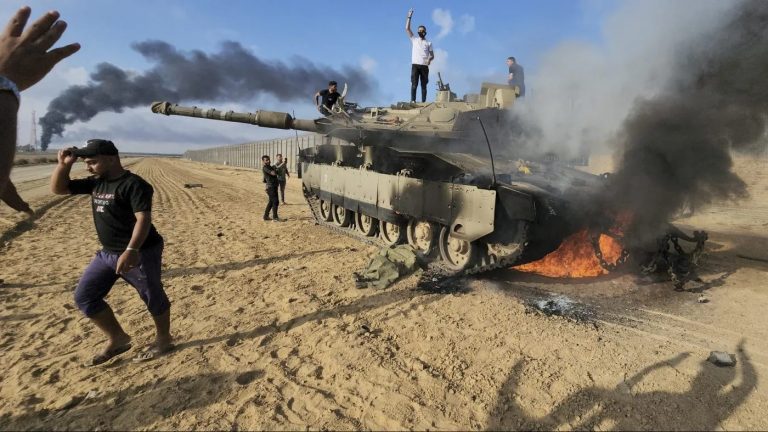
German Foreign Minister Johann Wadephul, during his inaugural visit to Israel on May 11, 2025, urged the Israeli government to re-engage in serious ceasefire negotiations with Hamas to address the ongoing conflict in the Gaza Strip. Speaking in Jerusalem alongside Israeli Foreign Minister Gideon Saar, Wadephul expressed doubts about the effectiveness of Israel’s intensified military actions since March 2025, stating, “I am not sure whether all of Israel’s strategic goals can be achieved in this way.”
He emphasized the dire humanitarian situation in Gaza, noting that no aid has reached the region for 70 days, exacerbating the crisis. Wadephul advocated for a ceasefire to ensure permanent humanitarian aid supplies to Gaza’s civilians, while acknowledging Israel’s concerns about aid misuse by Hamas.
He also supported a political solution, endorsing an Arab reconstruction plan involving the Palestinian Authority (PA) to govern Gaza, excluding Hamas, and stressed that Gaza’s reconstruction must be tied to a framework ensuring Hamas cannot threaten Israel. His call aligns with Germany’s longstanding support for a two-state solution and its solidarity with Israel, while prioritizing de-escalation and humanitarian relief.
Register for Tekedia Mini-MBA edition 19 (Feb 9 – May 2, 2026).
Register for Tekedia AI in Business Masterclass.
Join Tekedia Capital Syndicate and co-invest in great global startups.
Register for Tekedia AI Lab.
Wadephul’s call signals a nuanced adjustment in Germany’s traditionally staunch pro-Israel stance. While reaffirming solidarity with Israel, his skepticism about military solutions and emphasis on humanitarian aid reflect growing European concern over the Gaza crisis. This could pressure Israel to reconsider its strategy, especially as Germany is a key EU player and Israel’s second-largest arms supplier after the U.S.
Pressure on Israel: The push for ceasefire talks, coupled with support for an Arab-led reconstruction plan involving the Palestinian Authority (PA), challenges Israel’s current approach of intensifying military operations to dismantle Hamas. Israel may face increased international scrutiny if it resists negotiations, particularly given the reported 70-day aid blackout in Gaza, which has worsened civilian suffering.
Wadephul’s endorsement of a PA-led governance model for Gaza aligns with Arab proposals, notably from Saudi Arabia and Jordan, aiming to marginalize Hamas. This could bolster EU-Arab cooperation on Middle East peace efforts, potentially isolating Hamas further if reconstruction funds are tied to its exclusion. A successful ceasefire could restore aid flows to Gaza, addressing the acute humanitarian crisis. However, Israel’s concerns about Hamas diverting aid for military purposes may complicate negotiations, requiring robust monitoring mechanisms.
The call for talks may encourage other EU nations to echo Germany’s stance, potentially shifting momentum toward diplomacy. However, it risks straining Germany-Israel relations if Israel perceives it as undermining its security priorities. Meanwhile, Hamas may exploit the ceasefire proposal to regroup, as it has in past truces. Israel’s government, under Prime Minister Benjamin Netanyahu, prioritizes dismantling Hamas’s military and governance capabilities, viewing ceasefire talks as potentially allowing Hamas to regroup.
Germany, while supportive of Israel’s security, emphasizes humanitarian costs and a political solution, highlighting a divide over means (military vs. diplomatic) to achieve stability. Israel demands Hamas’s neutralization and guarantees against future attacks, while Hamas seeks to maintain influence in Gaza and leverage ceasefires for survival. Wadephul’s proposal sidesteps Hamas’s role in governance, creating tension with Hamas’s insistence on political relevance.
The U.S. has historically backed Israel’s military approach more robustly, though recent Trump’s administration statements (as of May 2025) show openness to diplomacy. Germany’s proactive push for talks may expose a transatlantic divide, with the EU leaning toward humanitarian and political solutions faster than the U.S. While Germany leads with this initiative, some EU states (e.g., Hungary, Czech Republic) are more unequivocally pro-Israel, while others (e.g., Spain, Ireland) are more critical.
This creates a fragmented EU approach, potentially diluting the impact of Wadephul’s call. The Arab reconstruction plan supported by Wadephul aims to empower the PA and exclude Hamas, aligning with Saudi and Jordanian interests but clashing with Hamas’s goal of retaining control in Gaza. This divide could complicate negotiations if Hamas resists marginalization.
Wadephul’s call for ceasefire talks seeks to bridge humanitarian and security concerns but exposes deep divides between military and diplomatic approaches, as well as competing visions for Gaza’s future governance. The success of this initiative hinges on navigating these fault lines, particularly Israel’s security demands and Hamas’s intransigence.



